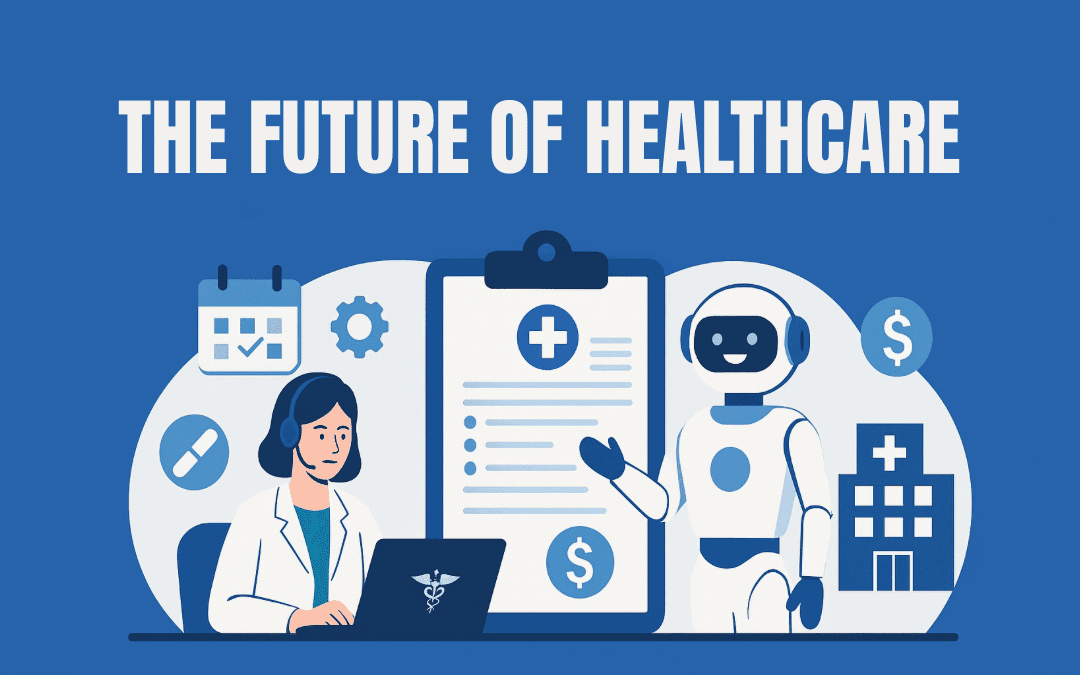Introduction
The integration of AI in hospital operations—especially through intelligent agents—marks a critical shift in modern healthcare management. As mounting administrative burdens and skyrocketing costs threaten care quality, AI agents offer scalable, smart automation to streamline processes. In this article, we explore five keyways AI agents in clinical documentation and hospital workflows are reshaping operations, with real-world examples, credible stats, and insights for healthcare leaders.
For a broader strategic overview, explore our comprehensive guide to AI in Healthcare and Hospital Operations, which outlines the foundational technologies driving intelligent hospital systems
5 Areas Where AI Agents Are Reshaping Hospital Administration
1. Automating Patient Scheduling and Reducing No-Shows
Missed appointments cost U.S. healthcare roughly $150 billion annually, draining resources and revenue. AI-powered schedulers analyze historical attendance, send personalized reminders, and fill cancellations automatically. For example, a dental group using such tools reduced no-shows by 38% and recovered $72,000 in monthly revenue—a powerful demonstration of AI in hospital operations boosting financial efficiency.
2. Streamlining Claims Processing and Billing
AI agents in clinical billing operate across the revenue cycle, handling real-time eligibility checks, detecting coding errors, submitting claims, and managing appeals.
According to CapMinds, healthcare practices using AI billing automation have seen claim denials drop by up to 50%, reimbursement times improve by as much as 80%, and significant productivity gains, underscoring the transformative potential of AI in hospital revenue workflows.
3. Enhancing Prior Authorization and Documentation
Prior authorizations are notoriously slow, each can take over 35 minutes of clinician time. AI agents can parse clinical records, assemble required forms, and submit approvals in under a minute, boosting first-pass approvals to 92% and reducing delays. Additionally, AI agents in clinical documentation transcribe and summarize consultations, giving clinicians 40% more time for patient care, a proven path to reducing burnout.
4. Optimizing Inventory and Supply Chain Management
Hospitals waste up to 25% in inventory cost through mismanagement. AI agents analyzing usage, expiration, and demand can automate reorders and sterility schedules.
One community hospital saved $250,000 annually on medication waste and maintained a 98% in-stock rate by deploying such technology in support of AI in hospital operations.
5. Coordinating Multi-Agent AI for Complex Decisions
Multi-agent AI frameworks, like the MATEC system for sepsis care, illustrate how team-based AI can manage clinical and operational complexities.
A U.S. teaching hospital pilot with MATEC reported significant clinician satisfaction and accuracy. Systems flagged cases requiring expert review, reducing ICU transfer delays and improving coordination in under-resourced settings.
These capabilities reflect the broader evolution of AI in hospital operations, where multi-agent systems play a key role in optimizing workflows across departments.
Financial and Operational Impact
- Administrative costs account for about 25% of U.S. healthcare spending, over $4 trillion annually.
- Hospitals could save $150–175 billion yearly through AI-driven reduction in no-shows, denied claims, and supply waste.
- Clinics report 20–40% reductions in administrative costs within months of AI deployment.
Medozai’s Role in Intelligent Automation
Platforms like Medozai exemplify how to integrate AI in healthcare, blending intelligent agents with existing EHR systems. By automating charting, prior authorizations, and billing workflows, they illustrate practical, scalable implementations that return measurable ROI, without disrupting care delivery.
Conclusion
AI agents are revolutionizing hospital operations, from scheduling and billing to documentation and supply management. By reclaiming ineffective staff time and reducing costly errors, healthcare organizations can improve care quality and reduce burnout.
The opportunity is clear: invest now in intelligent AI agents, align them around strategic administrative goals, and build a roadmap with pilot, evaluation, and scale phases. This is the future of efficient, human-focused healthcare.
FAQs
1. What is an AI agent in healthcare?
An AI agent is intelligent software that carries out administrative or clinical tasks: scheduling, billing, prior authorization, transcription, often learning and collaborating over time.
2. How much can hospitals save with AI agents?
Estimates point to $150–175 billion annually in reduced administrative burden, with individual hospitals often cutting 20–40% from manual processes within months.
3. Are AI agents secure and HIPAA-compliant?
Yes. Leading platforms enforce encryption, access controls, and audit logs to meet HIPAA/PIPEDA standards, enabling safe clinical use.
4. How do organizations start using AI in hospital operations?
Begin by mapping high-cost admin workflows, pilot test AI agents in a controlled environment, measure outcomes like time saved and error reduction, and scale with governance and compliance oversight.
5. Can mid-sized hospitals benefit from AI agents?
Absolutely. SaaS-based AI solutions, such as those from Medozai, scale to mid-sized hospitals and clinics without heavy upfront investment or IT complexity.


Trackbacks/Pingbacks